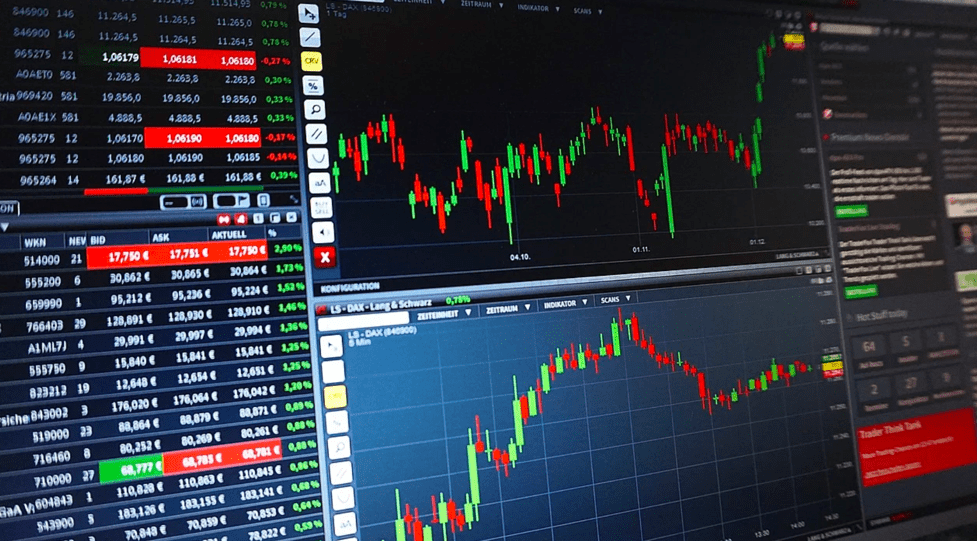Evaluating the Viability of Day Trading as a Primary Source of Income
Forex Guide | Dezember 12, 2020, 13:56 PM | Brought to you by a Guest author
Virtual workplaces have ushered in a new era vis-a-vis the way people generate income. Experts attribute the tectonic shift away from institutional control over financial activity to the democratization of personal financial management. The Internet of things has facilitated a DIY approach to trading and investing, and a plethora of platforms fully supports these new-age concepts. The proclivity to approach the financial markets without go-betweens in the form of fund managers, investment advisers, and analysts certainly has pros and cons.
 Day trading in particular warrants careful consideration. This vocation involves deliberate, action-oriented decision-making processes. New traders and seasoned veterans of the trading realm can open positions in listed equities, go long, go short, and close them within the same day. Naturally, the trading platform and/brokerage must sanction day trading and many do. Various trading platforms do not offer day trading services, as they function primarily as investment brokerages for long-term holdings. At these institutions, funds from the sale of equities must be cleared before they are available for re-trading purposes. As a day trader, you have many important factors to consider if this is to be your chosen vocation for income generation.
Day trading in particular warrants careful consideration. This vocation involves deliberate, action-oriented decision-making processes. New traders and seasoned veterans of the trading realm can open positions in listed equities, go long, go short, and close them within the same day. Naturally, the trading platform and/brokerage must sanction day trading and many do. Various trading platforms do not offer day trading services, as they function primarily as investment brokerages for long-term holdings. At these institutions, funds from the sale of equities must be cleared before they are available for re-trading purposes. As a day trader, you have many important factors to consider if this is to be your chosen vocation for income generation.
Important Considerations for Day Trading Activity:
- The most important reason why a day trader becomes successful is the pursuit of knowledge, and incremental gains rather than once-off windfall profits on trades.
- You can trade financial instruments at your leisure, from the comforts of home, or on the go with mobile trading apps from your preferred brokerage.
- You conduct requisite research to make more informed trading decisions.
- Put your understanding of the financial markets to the test by applying technical and fundamental analysis to your day trading activity. Various tactics and strategies can be enmeshed in your decision-making processes, for greater effectiveness of trade outcomes.
- Day trading is volatile at the best of times. There is a definite element of risk involved which can have an ‘adrenaline-rush’ effect on traders who would otherwise be stuck in monotonous daily routines.
- The longevity of a day trading career can be as long as you want it to be, provided you are of the right mindset, temperament, and nature. Rash, emotionally-based day trading activities ultimately end in ruin, while measured trading decisions can yield substantial profits over the long-term
Is it Possible to Quit Your Day Job and Start Day Trading?
Anyone with the right mix of curiosity, dedication, and active love of learning about the financial markets can certainly succeed as a day trader. However, the majority of day traders fail for a variety of reasons. To borrow from the sages of the investment arena, '…pursue incremental gains…. start small and grow… balance your trades… trade with your head, not your heart… understand how the markets work… learn about your options…' et al. The more you delve into it, the clearer it becomes.
A rudimentary exploration of day trading quickly reveals the complexities therein. It is one thing to simply pick a stock, willy-nilly, buy it, and sell it soon thereafter. It is an entirely different undertaking to scan the markets for viable trading opportunities, time your trades, balance your trades, and act upon them in such a way that they yield profitable outcomes. It all begins with a plan. This is the bedrock of your day trading career.
Ask any honest day trader about how easy it is to make a lot of money trading, and they will tell you it takes lots of hard work to get to a point where you can consider yourself a success. If you are reckless in your pursuit, a rush of blood to the head can undo all the good work you have done until that point. A trader who acts on gut instinct, and not on careful, methodical, and strategic analysis of the financial instrument and the market risks everything.
Fortunately, day trading is less about rolling the dice and more about informed decision-making processes. Ultimately, you have a say about where your capital will be invested, and for how long. Sensible trading strategies warrant budget management. To this end, it is foolhardy to plough all of your available capital into a single trade; that's a recipe for disaster. No matter how confident you are about a tip you received, or a feeling you have regarding a stock – resist the temptation to go all in, on the expectation of a windfall win. You may regret this when your hunch pays off, but you will still have your capital available even if it doesn't.
The Road Less Travelled: What Happens If You Fail at Day Trading?

The gurus believe that success comes from failure. If you never attempt to ride a horse, and fall off the horse, you won't get back onto the horse, and learn what to do and what not to do. Avoidance of risk is the absence of gain. To draw a superficial parallel, one cannot win the lottery without buying a ticket. In much the same way, failure is an intractable component of day trading activity. Be prepared to fail – it's part of the learning curve. The more you understand about trading, the less likely you are to fail.
A failed trade is not a failed trader.
We all make mistakes. It's important how you deal with them, learn from them, and never repeat them. The skills you learn through trading can be applied to the broader financial markets, and to life itself. It's not merely about buying Stock A for price X and selling Stock A for price X +1; it's about managing your budget, exercising control over your actions, eliminating emotionally-based decision-making where logic should prevail, and timing your actions to yield the best possible outcomes. It will never benefit you to behave like a bull in a china shop when it comes to trading. Act with purpose, grit, and resolve – that's how winning is done!
Regulated Brokers
The table below contains links to 3rd party websites of our top partners from whom we receive compensation at no additional cost to you.













